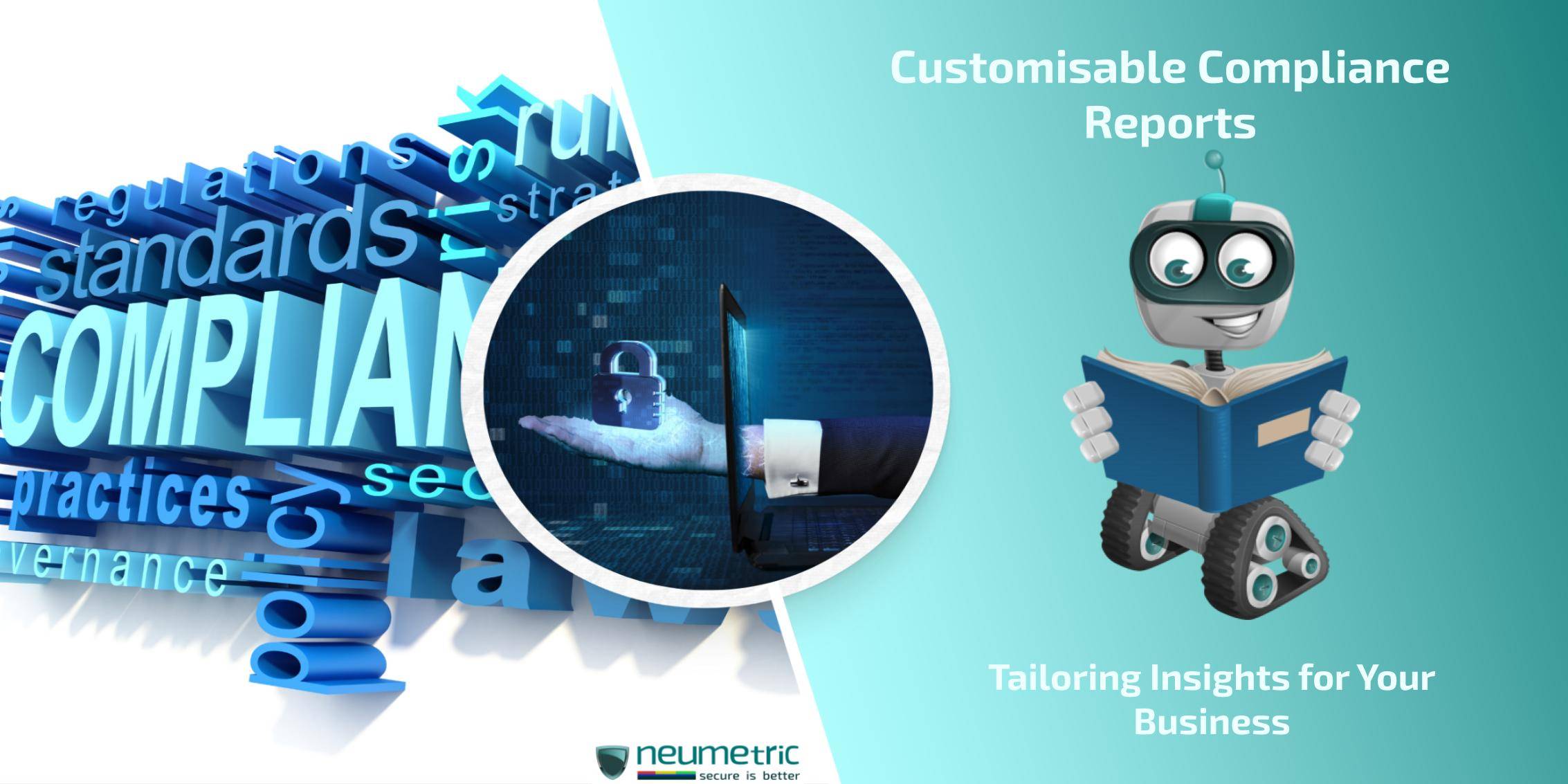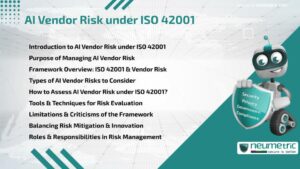Table of Contents
ToggleCustomisable Compliance Reports: Tailoring Insights for Your Business
Introduction
In the dynamic landscape of contemporary business, navigating the regulatory environment is integral to sustainability & success. At the heart of this regulatory navigation lies the concept of Compliance Reports. Compliance Reports serve as comprehensive documentation that outlines an organization’s adherence to various regulations & standards governing its industry. These reports are not merely paperwork; they are a testament to a company’s commitment to ethical practices, legal obligations & industry guidelines.
The significance of compliance in business cannot be overstated. Beyond the ethical imperative, adherence to regulations safeguards a company’s reputation, fosters trust among stakeholders & mitigates legal risks. It is the bedrock upon which sustainable, responsible business practices are built.
However, the conventional, one-size-fits-all approach to compliance reporting poses challenges. Generic reports often fail to capture the nuances of a particular business, leading to a lack of relevance & sometimes even misinterpretation of crucial data. As industries evolve, so do regulatory demands, making it imperative for businesses to seek a more tailored & dynamic approach to compliance reporting.
Understanding Customisable Compliance Reports
Customisable Compliance Reports represent a departure from the rigid structure of generic reports. They embody a tailored approach that aligns with the unique needs & intricacies of individual businesses. The scope extends beyond mere data collection, emphasizing adaptability & precision in presenting compliance insights.
Benefits for Businesses
- Enhanced Relevance: Customisation breathes relevance into compliance reporting. By aligning the reporting structure with the specific operations & regulatory landscape of a business, these reports become more than a checklist—they become a meaningful reflection of compliance tailored to the organization’s intricacies.
- Improved Decision-making: The value of customisation extends beyond regulatory checkboxes; it becomes a tool for informed decision-making. Businesses gain a nuanced understanding of their compliance status, allowing leaders to make strategic decisions grounded in a comprehensive understanding of the regulatory landscape specific to their industry & operations. Customisable reports empower executives with the insights needed to steer the company confidently through complex compliance challenges.
Key Components of Customisable Compliance Reports
Data Collection
- Automated Data Gathering: Automated data gathering leverages technology to streamline the collection process. It involves the use of sophisticated tools & systems to extract, organize & update compliance-related data in real-time. This not only ensures accuracy but also reduces the burden of manual data entry.
- Manual Data Entry: While automation is a powerful ally, certain nuances & contextual details require human insight. Manual data entry allows for the inclusion of qualitative information that might escape automated processes. The combination of both automated & manual data entry creates a comprehensive dataset for a more nuanced understanding of compliance.
Report Templates
- Flexibility in Design: Customisable Compliance Reports are not confined to rigid structures. The design flexibility allows organizations to tailor the format to their unique needs. Whether it’s visual elements, data visualization techniques or the overall layout, flexibility in design ensures that the report is a bespoke representation of the organization’s compliance landscape.
- Incorporating Key Metrics: Beyond aesthetics, report templates are functional tools for showcasing key metrics. Customisation involves the strategic incorporation of specific performance indicators & compliance metrics that matter most to the business. This ensures that the report communicates not just data, but actionable insights that drive decision-making.
Tailoring to Industry Specifics
- Regulatory Requirements: Tailoring compliance reports involves a meticulous understanding of the regulatory environment. Customisation ensures that the report aligns precisely with the regulations governing the industry, leaving no room for misinterpretation or oversight.
- Industry Standards: Beyond regulatory mandates, each industry adheres to its own set of standards & best practices. Customisable reports integrate these industry-specific benchmarks, providing a comprehensive view of compliance that extends beyond the minimum requirements.
Technology Behind Customisation
Data Analytics
- Utilizing Big Data: At the heart of Customisable Compliance Reports lies the prowess of big data. The sheer volume & complexity of data generated in modern business operations necessitate robust analytics. Utilizing big data allows for comprehensive insights, uncovering patterns, trends & anomalies that might go unnoticed in traditional data sets.
- Predictive Analytics: Customisable reports move beyond retrospective analysis. Predictive analytics, powered by advanced algorithms, enables organizations to anticipate future compliance trends. By leveraging historical data & identifying patterns, predictive analytics equips businesses with proactive measures, transforming compliance reporting from a reactive obligation to a strategic foresight tool.
Machine Learning
- Automation of Report Generation: Machine learning [ML], a subset of Artificial Intelligence [AI], takes center stage in automating the generation of Customisable Compliance Reports. Through algorithms that adapt & learn from data inputs, machine learning systems automate the tedious task of report generation. This not only saves time but ensures consistency & accuracy in reporting.
- Continuous Improvement: Machine learning doesn’t stop at automation; it thrives on continuous improvement. The algorithms evolve, learning from new data & adapting to changes in the regulatory landscape. This dynamic nature ensures that Customisable Compliance Reports not only meet current standards but also stay ahead of emerging compliance challenges.
Implementing Customisable Compliance Reports
Assessing Business Needs
- Identifying Key Compliance Areas: The first step in implementing Customisable Compliance Reports is a thorough assessment of the business landscape. This involves pinpointing the specific compliance areas that are critical to the organization’s operations. Whether it’s industry-specific regulations, internal policies or international standards, a meticulous identification of key compliance domains sets the stage for targeted customization.
- Understanding Reporting Requirements: Customisation is effective when it aligns with the unique reporting requirements of a business. Understanding what information is crucial for decision-making, regulatory adherence & stakeholder communication is paramount. This step involves engaging with key stakeholders to define the scope & depth of reporting necessary for strategic insights.
Choosing the Right Tools
- Software Solutions: The selection of appropriate software solutions is a pivotal decision. Customisable Compliance Reports demand tools that not only facilitate data collection but also support flexible report design & automation. Robust software solutions should align with the identified key compliance areas & provide scalability for future customization needs.
- Integration with Existing Systems: Seamless integration is essential for the success of Customisable Compliance Reports. The chosen tools should integrate harmoniously with existing systems to ensure a smooth flow of data. This integration not only optimizes efficiency but also avoids disruptions to ongoing business processes.
Employee Training
- Ensuring Competency: Transitioning to Customisable Compliance Reports requires a workforce that is competent in utilizing the new tools & understanding the customized reporting framework. Training programs should focus on enhancing the skills necessary to navigate, interpret & contribute to the customized reporting process.
- Adapting to New Reporting Processes: Embracing customization often entails a shift in reporting processes. Employees must adapt to the dynamic nature of Customisable Compliance Reports, understanding how to leverage the tailored insights for decision-making. This adaptability fosters a culture where compliance reporting becomes not just a routine task but a strategic tool for business success.
Challenges & Solutions
Data Security Concerns
- Encryption & Secure Storage: The customization of compliance reports often involves handling sensitive information. To counter data security concerns, robust encryption methods must be employed. Encryption ensures that both data-in-transit & data-at-rest, remains protected against unauthorized access, providing a secure environment for compliance-related information.
- Compliance with Data Protection Laws: As data privacy regulations become more stringent, businesses must align their Customisable Compliance Reports with data protection laws. This involves not only securing data but also ensuring that the customization process adheres to legal frameworks, safeguarding both the organization & its stakeholders.
Integration Issues
- Seamless Integration with Existing Systems: Integrating Customisable Compliance Reports with existing systems is a common hurdle. The solution lies in selecting tools that offer seamless integration capabilities. The chosen software should complement, rather than disrupt, established workflows, ensuring a harmonious amalgamation of the new reporting approach with existing operational frameworks.
- Overcoming Resistance to Change: Human resistance to change is a formidable challenge in any organizational shift. Overcoming this resistance requires effective communication, training & showcasing the tangible benefits of Customisable Compliance Reports. Emphasizing the positive impact on efficiency, decision-making & overall business success can mitigate apprehensions & foster a culture open to innovation.
Conclusion
The evolution of compliance reporting is an ongoing journey. Customisation marks a paradigm shift, turning compliance from a regulatory obligation into a strategic asset. As technology continues to advance, businesses embracing Customisable Compliance Reports position themselves not just as compliant entities but as proactive, forward-thinking leaders in their respective industries. The evolution of compliance reporting is not just about meeting standards; it’s about setting new standards for excellence in governance & accountability.
The challenges notwithstanding, the benefits of Customisable Compliance Reports far outweigh the initial hurdles. Encouraging businesses to embrace this tailored approach requires a commitment to innovation, adaptability & a strategic vision for the future of compliance management. Customisable Compliance Reports offer businesses a tailored approach to regulatory adherence, providing enhanced relevance, improved decision-making & a strategic edge in an ever-evolving business landscape.
FAQ
Why should my business consider Customisable Compliance Reports?
Customisable Compliance Reports ensure your reports aren’t just checkboxes but strategic tools, offering enhanced relevance & insights tailored to your unique business needs.
How does automation in report generation benefit my organization?
Automation streamlines reporting, saving time & ensuring consistency. It empowers your team with accurate, real-time data for better decision-making.
What measures can we take to address data security concerns in customization?
Implement robust encryption for secure data storage & ensure compliance with data protection laws, safeguarding sensitive information.
How do we overcome resistance to change when introducing Customisable Compliance Reports?
Overcoming resistance involves effective communication, showcasing tangible benefits & emphasizing the positive impact on efficiency & overall business success.
What role does predictive analytics play in Customisable Compliance Reports?
Predictive analytics anticipates future compliance trends, transforming reporting from a reactive task to a strategic foresight tool, aiding in proactive compliance management.





